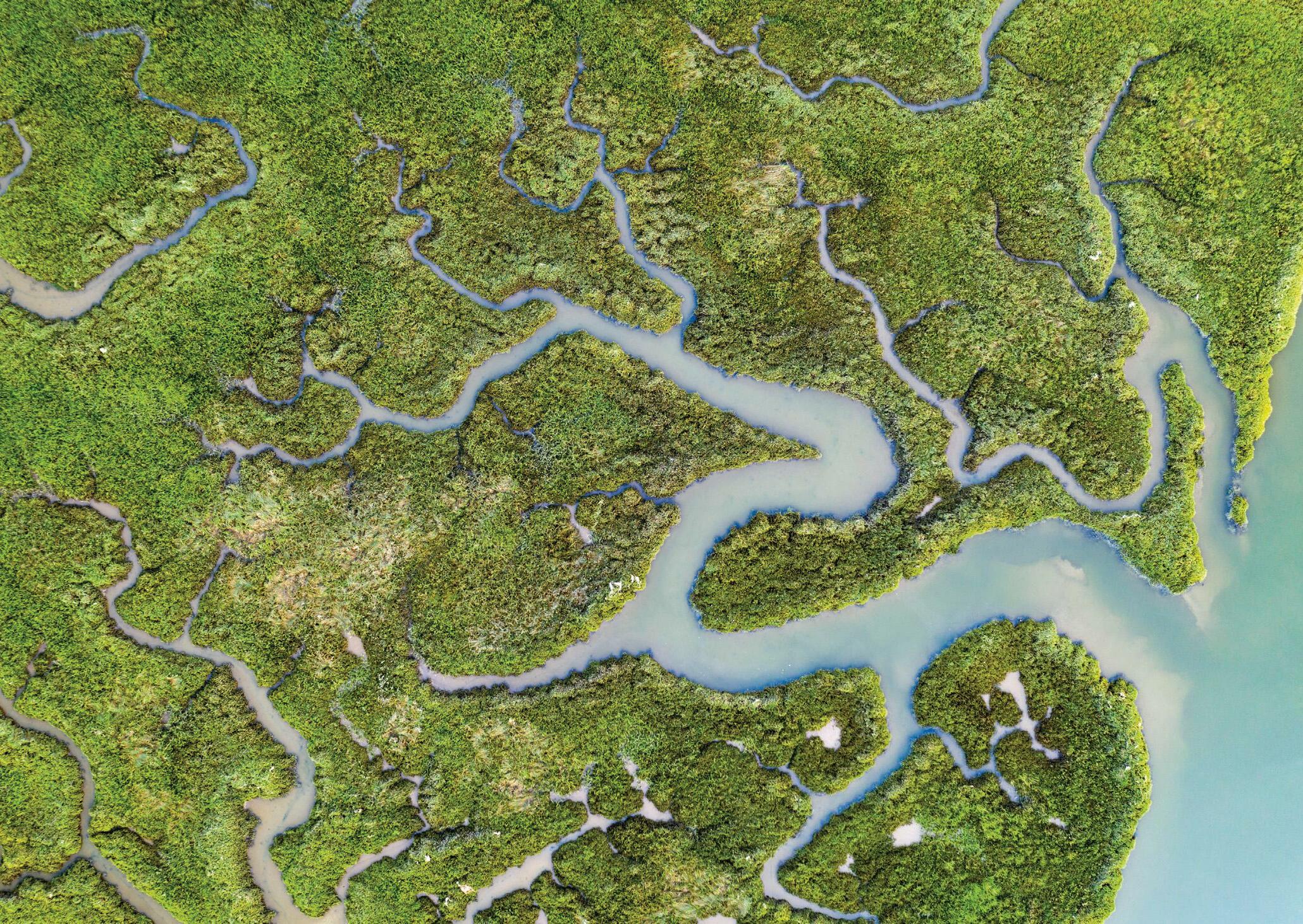
IN the estuary, worlds meet, combine, finish. Not only the various states of Nature-the freshwater of the outgoing river, first embracing, then battling the incoming saline sea, merely to dissolve into oceanic extinction-but human states, too.
I know of no more perfect exemplar of the estuary phenomenon than the Thames at Tilbury. You take the c2c train from Fenchurch Street, London, proceed 20 miles as the gull flies, disembark, take the uncharter'd, lager-can-strewn streets down to where the old Thames doth flow... and there is a clapperboard pub at the end of the lane, surrounded by nibbled grass and piebald ponies.
The pub is called The World's End. If it had pirates sitting outside, you would say: 'Of course.' Up to East Tilbury, the tidal Thames could be mistaken for a river. After Tilbury, the Thames is unmistakably an estuary, a quintessential estuary. The water widens, the view opens, the sky enlarges. It is a primitive landscape/waterscape of horizontals: foreshore, water, foreshore.
On the nose, the tang of salt and rotten egg of silt (as opposed to the weedy, wet-dog sniff from a river) and in the soul, the ingress of solitude. Paradigms of ecology, history, spirituality, society shift. At Tilbury, the metropolitan South-East becomes estuarine Essex, with its gravel pits, waste dumps, docks and petrochemical plants all the proletarian mechanisms that allow the glamorous façade of London to perform.
This story is from the {{IssueName}} edition of {{MagazineName}}.
Start your 7-day Magzter GOLD free trial to access thousands of curated premium stories, and 9,000+ magazines and newspapers.
Already a subscriber ? Sign In
This story is from the {{IssueName}} edition of {{MagazineName}}.
Start your 7-day Magzter GOLD free trial to access thousands of curated premium stories, and 9,000+ magazines and newspapers.
Already a subscriber? Sign In

Tales as old as time
By appointing writers-in-residence to landscape locations, the National Trust is hoping to spark in us a new engagement with our ancient surroundings, finds Richard Smyth

Do the active farmer test
Farming is a profession, not a lifestyle choice’ and, therefore, the Budget is unfair

Night Thoughts by Howard Hodgkin
Charlotte Mullins comments on Moght Thoughts

SOS: save our wild salmon
Jane Wheatley examines the dire situation facing the king of fish

Into the deep
Beneath the crystal-clear, alien world of water lie the great piscean survivors of the Ice Age. The Lake District is a fish-spotter's paradise, reports John Lewis-Stempel

It's alive!
Living, burping and bubbling fermented masses of flour, yeast and water that spawn countless loaves—Emma Hughes charts the rise and rise) of sourdough starters

There's orange gold in them thar fields
A kitchen staple that is easily taken for granted, the carrot is actually an incredibly tricky customer to cultivate that could reduce a grown man to tears, says Sarah Todd

True blues
I HAVE been planting English bluebells. They grow in their millions in the beechwoods that surround us—but not in our own garden. They are, however, a protected species. The law is clear and uncompromising: ‘It is illegal to dig up bluebells or their bulbs from the wild, or to trade or sell wild bluebell bulbs and seeds.’ I have, therefore, had to buy them from a respectable bulb-merchant.

Oh so hip
Stay the hand that itches to deadhead spent roses and you can enjoy their glittering fruits instead, writes John Hoyland

A best kept secret
Oft-forgotten Rutland, England's smallest county, is a 'Notswold' haven deserving of more attention, finds Nicola Venning